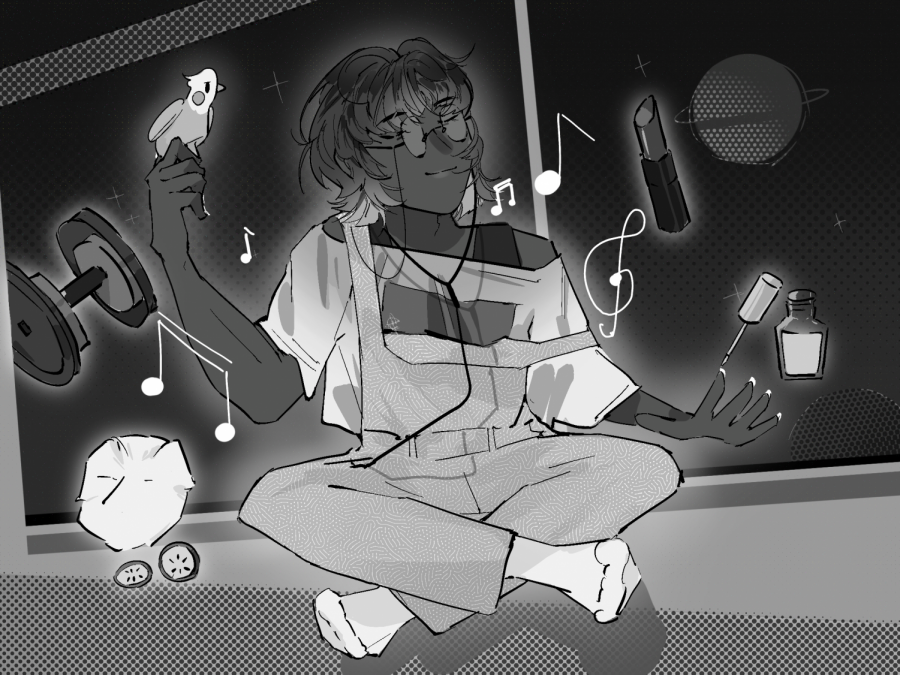The Predatory Nature of the Self-Care Industry Today
Self-care has infiltrated modern society, but not necessarily for the better.
From Twitter self-care bots to life under a pandemic, self-care has become a huge part of daily life—self-care-related searches on Google rose to a staggering 250% over the last year alone. Broadly speaking, Oxford Dictionary describes self-care as “the practice of taking action to preserve or improve one’s own health,” the key idea being that self-care is meant to help people maintain a healthy and sustainable lifestyle. As a society, however, we have collectively begun obsessing over self-care without understanding what it means, claiming the need for self-care with every hour of Netflix watched or every minute of scrolling through Instagram. Recently, self-care has become an easy fix to cure any and every possible illness, despite stemming from a culture of consumerism that preys on insecurities.
Why do we think this way? A huge factor is the commodification of self-care, with consumable products such as face masks and makeup being touted as its epitome. The self-care industry has become a prominent business today, amassing over 4 trillion dollars according to a 2021 report by the Global Wellness Institute (GWI). On the cheaper side, packages can cost maybe twenty-or-so dollars, but more often than not, they cost hundreds, which is concerning for something that may not even work. Because here’s the thing with self-care: it’s personalized, but consumables can encourage a “one-size fits all” solution.
However, what one person needs will not be what another person needs when it comes to self-care, nor should it. In an ideal world, self-care should be helping people strive towards a healthier lifestyle, even if it means making choices that are not necessarily convenient, and these choices may vary from person to person. However, reliance on products instead of sustainable activities, such as seeing a therapist or decompressing with friends, makes this version of self-care temporary and toxic.
The problem is made worse with business-related websites like Forbes actively advising aspiring businessmen to hop onto the “self-care consumer trend,” making the idea of self-care in 2021 shallow and a simple source of income. Consumerism has altered self-care from personal coping into a profitable business.
These businesses often prey on people’s fears and insecurities by selling products related to body image and beauty—the same GWI report found that nearly one-fourth of the money made by this industry came from beauty products and “anti-aging” products. Leaving aside businesses solely created to aid in this consumption, influencers also use their platforms to sell beauty products in the guise of self-care. Take Tony Robbins for instance, who for only 200-300 dollars will provide you with weight-loss packages that will help you take care of yourself as you need. By preying on body image and self-esteem issues, the industry extends its influence on the populus, which could, ironically enough, worsen mental health instead of fixing it.
Commodification aside, other pieces of media encouraging self-care have given unattainable expectations for the everyday person. Instagram influencers, with their lifestyle blogs filled with picture-perfect posts and clean, aesthetic feeds, promote the impression that self-care requires spending as much time and money as possible. In these worlds, self-care is adding that final bit of finish to your day, be it a new manicure, a skincare routine, or excessive journaling. Other posts advocate that you deserve a break, espousing positive, affirmation statements with little to back them up. This aesthetic makes self-care performative, romanticizing the fact that having a spotless life filled with ease and relaxation is the way to attain true happiness. However, the over 55 million posts under #selfcare on Instagram can attest to the fact that this is not a problem that will be going away anytime soon.
Inherently, self-care is not bad at all, but its inextricable links to consumerism and a perfect aesthetic are the true problem. The two portray self-care as an easy fix to cure any and every possible problem there may be in the world, despite the fact that genuine mental health and lifestyle problems can take years of work to fix.
So what does practicing sustainable self-care look like? It truly depends on the person, but practicing good self-hygiene like bathing, brushing your teeth, and eating healthy form the basics for everyone. From there, it’s all about adding other practices into your life in slow steps, which can be as simple as taking a nice walk for a few minutes. It means not isolating yourself in a frenzy of goods and social media posts, instead of connecting with others. In the end, as fun as manicures and bubble baths may be, they are just a getaway from the grand scheme of life, and it takes more than a facemask to completely solve one’s problems.







